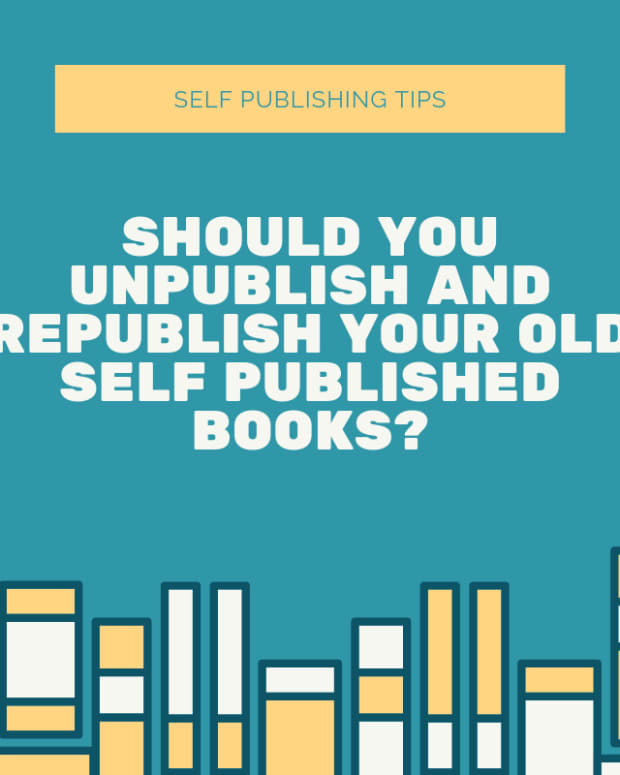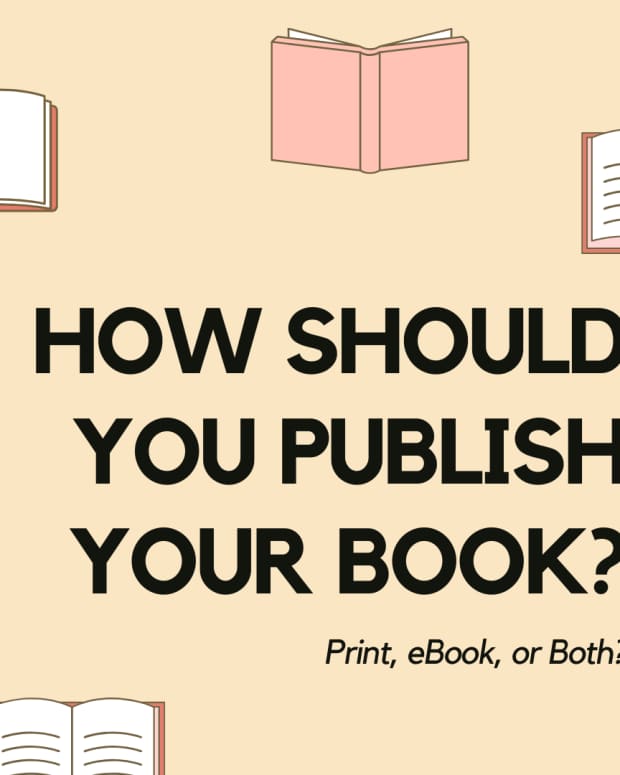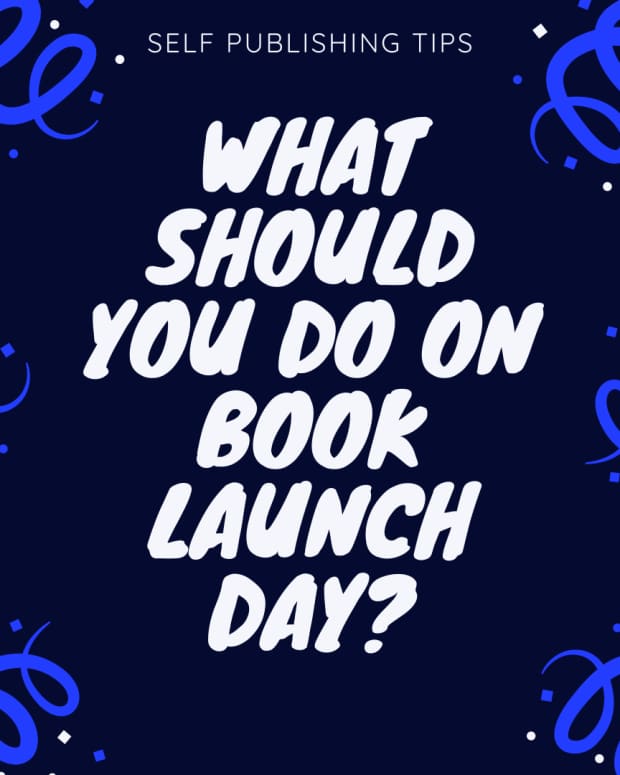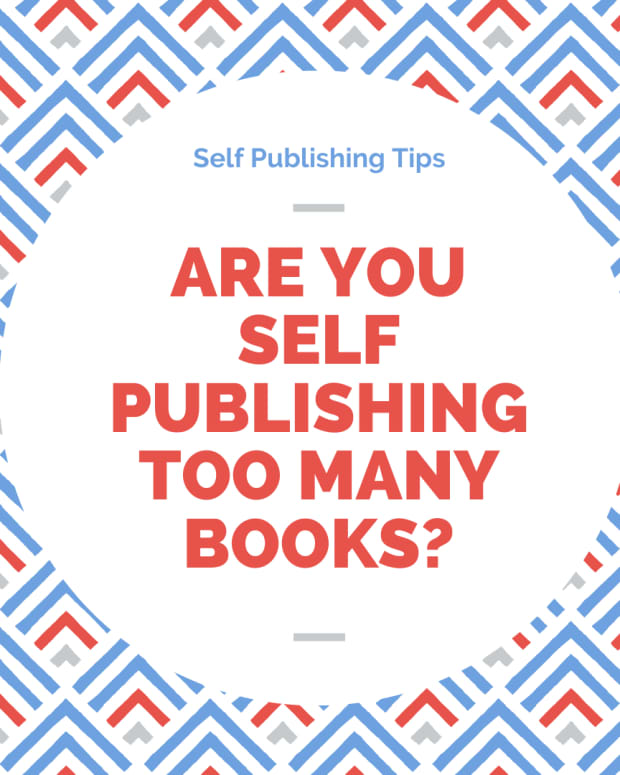Should You Rewrite Your Self-Published Fiction Book?
Heidi Thorne is a self-publishing advocate and author of nonfiction books, eBooks, and audiobooks. She is a former trade newspaper editor.

There are many reasons why someone might want to rewrite a work of fiction.
Heidi Thorne (author) via Canva
A question came up in an online author forum about rewriting and then republishing a self-published novel. For nonfiction, rewriting and publishing new editions of an already-published book is common because of changes occurring in the book’s subject. But for fiction? That’s changing a work of art!
Let’s explore why authors may feel compelled to rewrite self-published fiction works and whether it’s advisable to do so.
Why Would an Author Want to Rewrite a Fiction Book?
There are multiple reasons that might prompt an author to consider rewriting a fiction book. Here are a few of the most common.
- The writer has grown in writing skill and feels that rewriting result in a book that better showcases their talent.
- The original book has a lot of mechanical or writing errors that need to be fixed.
- Reading tastes have changed, and rewriting could help an agingbacklist bookgain a new or expanded audience.
- The world has changed, making some or all of a book unacceptable under current or emerging cultural and societal norms.
Let’s look at how each scenario might play out (or not).
Rewriting to Improve Quality
Imagine you’re the artist Picasso. One day you decide that your early Blue Period work is trash, so you decide to paint something “better” right over it. What a tragedy that would be! Yet, that’s what authors who decide to rewrite a book are doing if the rewrite is spurred by a disdain for their earlier work.
Authors and artists grow and change over time. Fans of their work expect this. Many fans like to be known for their support of creatives’ raw early careers. “I followed [insert name here] before they were famous!” Those early supporters may even be mad that you fiddled with their favorite book.
There is only one time where you might wish to perfect a past work, and that is when the manuscript contains a large number of typos or other mechanical errors. This is not so much as rewrite as it is a correction or reprinting. It’s pretty easy to make these changes and re-upload your corrected manuscript to KDP (Kindle Direct Publishing) or another self publishing platform.
Rewriting to Keep Up With Trends
For a while, vampire romance was hot (thinkTwilightseries). Then, it was dystopian future fiction. As I’m writing this, diversity and inclusion-themed works are in focus. You’ll see trends in genres and subject matter change continuously. You may have written a book that picked up on one of these trends. Now, that book you labored to bring to the world is off trend. Should you rewrite it?
Readers are fickle. Genre trends can be cyclical. Sometimes you’ll see a resurgence of either a genre type or subject matter. But good fiction, like art, lasts.
While you don’t want to ignore book market and genre trends, you don’t want your work to be dependent on them. Write what you’re suited to write. Write for the fans that love your work and genre no matter what. Don’t change your past work just to chase a passing trend.
Rewriting for Cultural Sensitivity and Diversity
As I’m writing this, works highlighting diversity, inclusiveness, and social justice, along with diverse authors, are getting more attention in the public and publishing. That is a step forward.
But what if your book published years ago includes characters, situations, or language that is now considered culturally or socially inappropriate? Maybe your portrayal of a topic is now unacceptable, or maybe it’s completely devoid of diversity.
趋势仔细!为前ample, rewriting a novel just to add BIPOC (Black, Indigenous, and people of color) or LGBTQ (lesbian, gay, bisexual, transgender, or queer) characters to an existing storyline could be viewed as tokenism.
If you follow author and reader conversation on social media around these issues, you might see backlash against white authors who write books featuring minority characters and issues while having little understanding of them. Not only can this be viewed as tokenism, but it might also be considered opportunist and insensitive.
What about historical fiction? This is probably the trickiest of all. The example that comes to mind immediately for me is the historical novel,Gone With The Wind, by Margaret Mitchell. It’s an American-literature masterpiece as well as a cinematic classic. However, its depiction of Black characters is problematic. Criticism for both the book and the movie has also emerged for its romanticization of the antebellum South ands its depiction of slavery with a positive wash.
So, shouldGone With The Windbe rewritten? Apart from the fact that Margaret Mitchell is no longer alive to retell the tale in a more culturally appropriate way, this is another example of perfecting the past.
Gone With The Windisn’t the only work that’s receiving criticism. Decades-old classics from the Disney universe are also being cited for being culturally insensitive. However, rather than remove these works from their catalog,Disney is showing them in their entirety with the disclaimer that they contain “outdated cultural depictions” (USA Today).That move has received both praise and criticism.
I wish I could say there was a bright-line rule to handle this scenario. There isn’t. You need to consider the audience for your work and their ability to accept any historical and cultural improprieties in context.
Three Ways to Rewrite Fiction Successfully
Let’s say you decide to forge ahead with a rewrite of one of your existing books. What are some approaches you can take?
Revisited:You could write a “revisited” version of your novel using your more advanced writing skills. In addition, you could address any culturally inappropriate aspects.
Retelling:This is similar to revisited, but it can be a completely different work using the same story line. In this case, you could retell the exact same story from a different point of view, such as from the vantage point of an existing or new character. You could also move it to another location or time period.
Reviewed and Renewed:If your intent is to make the older book more culturally acceptable for a new era, you’ll need some help from editors andbeta readers. Recruit editors and betas that can provide insight and perspective on cultural issues, especially those who are from diverse populations that are sensitive to these issues. You'll also need to market this work separately and differently than the original.
This article is accurate and true to the best of the author’s knowledge. Content is for informational or entertainment purposes only and does not substitute for personal counsel or professional advice in business, financial, legal, or technical matters.
© 2021 Heidi Thorne
Comments
Heidi Thorne (author)from Chicago Area on April 29, 2021:
MG, I totally agree! Why keep doing the same old stuff? :) Thanks for reading and commenting! Have a great day!
MG Singh emgefrom Singapore on April 29, 2021:
I do feel it's not worth the effort to re-write already self published books. I think it would be better to write a new book.
Heidi Thorne (author)from Chicago Area on April 29, 2021:
Mary, I'm pretty much like you. With one exception, I haven't rewritten any of my books, except for necessary minor updates. It's just not worth it. I say, move forward!
Thanks so much for your thoughtful comments! Have a beautiful day!
Heidi Thorne (author)from Chicago Area on April 29, 2021:
Adrienne, I think you're right in that there are many authors who wouldn't want anyone or anything to mess with their books (even if it's editors who could make their books so much better). :) But I do like your idea of hiring someone else to do the updates. That would be an interesting effort. It could result in a very different work.
Thanks for adding those thoughtful comments! Have a great day!
Adrienne Farricellion April 28, 2021:
It was interesting reading the variety of motives behind why an author would rewrite a fiction. Reaching a certain level of mastery and wanting to ameliorate a book sounds like a valid motive, and so is staying up-to-date with all the newest trends. I personally, would find the task tedious and would perhaps think about hiring somebody to fix things and even add a creative touch. I am sure though many authors wouldn't want their works edited or touched by someone else.
Mary Nortonfrom Ontario, Canada on April 27, 2021:
I do beat myself when I think of ideas I have promoted before, and now, they seem not apt. This is the problem when one publishes, but I find rewriting a waste of effort unless what you published is used as a textbook and needs to be updated.
Heidi Thorne (author)from Chicago Area on April 27, 2021:
Hi Peg! From time to time, I think all of us authors look back and think we could have done better or differently. But we have to quit beating ourselves up for being at a different skill level earlier on our writing journey. The fact that we can recognize that our writing has improved over time is proof that we are growing!
I'm glad this provided some perspective as you consider rewriting some of your work. Good luck with whatever you decide on that. Thanks for your thoughtful comments, as always! Have a beautiful day!
Heidi Thorne (author)from Chicago Area on April 27, 2021:
Chitrangada, so many times I've looked back at my work and thought I could have done better, or done something differently. And, yes, for nonfiction and articles, it's almost a necessity to update when needed. But for fiction? Not so much.
Thank you so much for your thoughtful comments, as always! Have a beautiful day!
Heidi Thorne (author)from Chicago Area on April 27, 2021:
Linda, I include points you haven't thought of because I hadn't thought of them either... until the issue shows itself in the real world somewhere. Thank you for your support, as always! Have a beautiful day!
Heidi Thorne (author)from Chicago Area on April 27, 2021:
Pamela, I can't imagine anyone wanting to rewrite a 900+ page novel like Gone With The Wind either. :) Wow, what a project that would be. Thanks for adding that perspective to the conversation. Have a beautiful day!
Heidi Thorne (author)from Chicago Area on April 27, 2021:
Peggy, it truly is a personal choice for the author. So many factors have to be considered, such as potential sales, investment in revising, etc. But in many cases, it's best to leave the past as the past, and take the work in that context.
Thanks for your thoughtful comments, as always! Have a beautiful day!
Heidi Thorne (author)from Chicago Area on April 27, 2021:
Bill, that sounds like a great reason to me! :) I'll be anxious to hear if you decide to scrap the original, or decide to republish as a new work with a new twist.
Snow? No. Wind? Lots of it. But it's warmer. Yay!
Thanks so much for chiming in, as always! Have a wonderful day!
Heidi Thorne (author)from Chicago Area on April 27, 2021:
朵拉,我想你是对的。一个复述告诉reader that it's something new, but has a history. Thanks for adding your thoughts to the conversation! Have a beautiful day!
Heidi Thorne (author)from Chicago Area on April 27, 2021:
Flourish, I tend to want to side with the Disney approach, too. The past is the past. And, yes, revising to meet new standards is a LOT of work. So the author better have a good prospect of sales to want to make that investment.
Thanks so much for chiming in! Have a beautiful day!
科尔挂钩from North Dallas, Texas on April 27, 2021:
这是完美的主题的mind lately. As you've said, we grow as writers and sometimes our prior work seems like less than our best. I was quite interested in your take on rewriting previously self published releases. Thank you.
Chitrangada Sharanfrom New Delhi, India on April 26, 2021:
Great insightful article, Heidi.
As writers, we continue to grow and our writing skill improves in the process. When we look back at our old writings, there is a feeling, that I should have done this, I should have done that. For updating articles, it’s ok. But, I don’t think, it’s a good idea for fiction or stories.
As always, a valuable and helpful article by you. Thank you for sharing.
Linda Cramptonfrom British Columbia, Canada on April 26, 2021:
This is an interesting article, Heidi. You’ve given some good advice. I love the fact that your articles contain points that I haven’t thought of before.
Pamela Oglesbyfrom Sunny Florida on April 26, 2021:
Heidi, It sounds like you gave some good advice, as per usual. I can't imagine anyone rewriting 'Gone With The Wind'.
Peggy Woodsfrom Houston, Texas on April 26, 2021:
You pointed out why some books (like works of art) should be left alone. You also gave some reasons why some might serve some people well if they are updated. I guess it is a personal choice on the author's part, assuming they are still alive and wish to make the changes.
Bill Hollandfrom Olympia, WA on April 26, 2021:
You forgot the most important reason for doing it: your wife, who you adore, asked you to. LOL
End of story for this boy!
I hope the snows have ended for you guys. I think it's time for spring, don't you?
Dora Weithersfrom The Caribbean on April 26, 2021:
Perhaps the rewritten book may be embraced by a new audience, but why wouldn't they also want the old version of the story? It seems that retelling could satisfy both previous and new readers.
FlourishAnywayfrom USA on April 26, 2021:
This is excellent. Although my preference is that authors should leave the past alone and take Disney's approach (how else will people know what to criticize or contrast?), if they must trudge forward, then you provide some fabulous creative options. These take more work than simply revising the manuscript to edit out insensitive phrases, include diverse characters, etc.















